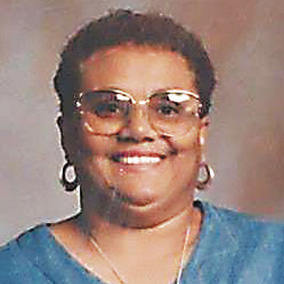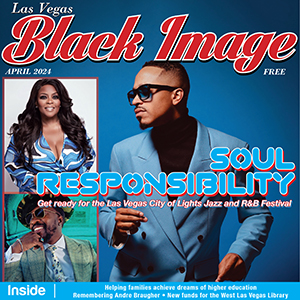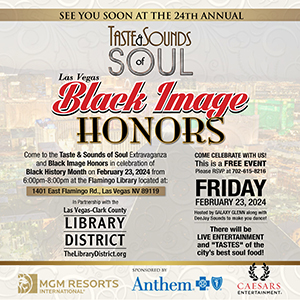I was first diagnosed with uterine cancer in 1980. The medical treatment routine included radiation, chemotherapy and surgery. I went into remission in 1996, and was diagnosed with breast cancer that same year. It reoccurred in 2013. This time I didn’t have chemotherapy; I just took one day of radiation and that was it. So far, the cancer has not come back — but I get a mammogram every six months, and I do blood work to make sure everything is OK. There are more medical specialists that can assist cancer patients today than there were back in 1980. I had no one toexplain to me what I would potentially go through when I was first diagnosed. When the cancer reoccurred in 1996, only the nurses told me what to expect when they escorted me to chemotherapy.
My breast cancer was hereditary; my mother died from it when she was 42 years of age. I later learned that I had the cancer gene and [eventually] had to have my whole breast
removed completely. But I am doing well. I try to keep an uplifted view. When I get depressed, I try to make myself happy by reading a good book that makes me laugh; I also read my Bible. I talk to God and that helps me a lot. I was 40 years of age when I received my first cancer diagnosis. I am now 75 years of age. My suggestion to other women is to do self-exams every time they are in the shower, and also get your medical checkups and mammograms.
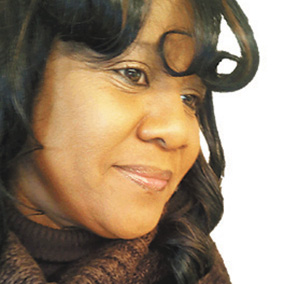
LANICE RODGERS
It was nine years ago when I first discovered something was wrong with my chest. I was making a client visit to a doctor who I produced a radio commercial for. I was feeling a sensation in my chest that I kept rubbing while I was in his office, and one of his employees, who was a friend, asked me, “Why are you rubbing your chest?” I really didn’t notice that I was doing it; I told her that I wasn’t sure, but I felt something there. She encouraged me to get it checked out with my doctor. When my client, the doctor, came into the room to listen to the radio commercial that was produced, his employee told him about my chest and asked if he would take a look at it. I was so embarrassed because he wasn’t my doctor, and I told him that it just might be my imagination. He replied, “Come back to my exam room and let’s see if it is your imagination.” So, after his insistence, I let the doctor take a look at my chest and he said, “It’s not your imagination. I am sending you back to the place where you had your last mammogram.”
Once I went back to the medical facility where I had a mammogram six months earlier, more tests and biopsy were done. Then I received “the phone call” while at work, confirming that I had breast cancer. I remember getting up from my desk at work and yelling to my fellow co-workers who worked in cubicles next to me, “I just found out I have breast cancer, so none of you ask me anything today!” My boss at the time told me I could go home and he just wanted me to relax. I immediately called my primary doctor and reminded him that I told him first that I had a burning sensation inside my breast months ago, and he never really addressed it. He asked if I wanted to be prescribed a valium to help me calm down. I said, “No. What are we going to do?” He referred me to a specialist named Dr. Theodore Potruch, who also confirmed that I had breast cancer. He told me the good news about this is that he was the best. I went through the process of treatment with Dr. Potruch.
Currently, I am taking a medication called Tamoxifen…it stops the cancer from recurring and growing. Everything moved very fast as it related to my treatment, and I have been clear of breast cancer for nine years. It took me a whole year to realize what I went through.
My suggestion to other women who might be going through this process is this: don’t stop. Move forward and ask the questions that will make you well. I think God said, “I
just have to push her through the process, because if I don’t she is going to be crazy.”
DONNA BETHLEY

DONNA BETHLEY
While I was lying on my bed I was giving myself a self-breast exam in 2009. To my surprise, I felt a lump, and called my doctor for an exam. I had the test, and a biopsy was done, and it was confirmed that I had breast cancer. I wasn’t in any pain from the lump in my breast, and at the time I was 57 years of age. I decided to have a mastectomy, and after the surgery I was offered radiation and chemotherapy — but I decided I didn’t want to do either, because my breast cancer was only at a stage 1.
Within one year the breast cancer came back close to my armpit and my chest. They removed my lymph nodes and I received chemotherapy and radiation. I lost my hair, and it has never really grown back; but I always wore a wig anyway, so that didn’t really bother me. I have been clear of cancer for five years — it would have been longer, but I had a reoccurrence. I would say to other women going through breast cancer and treatment to keep their faith in God. This is what gave me strength to continue on. My family and the support from my husband was right there for me. No matter what procedure I went through, my husband would say to me, “All I want is for you to be all right.”
KATRINA BELL
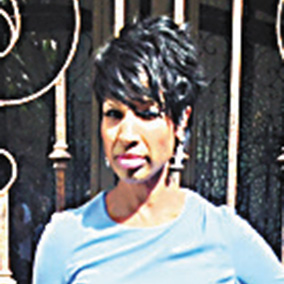
KATRINA BELL
Actually, I didn’t have any lumps to indicate that I had breast cancer in 2009. I went for my annual mammogram; which I wasn’t going to do. I said to myself, “Why am I going to keep getting mammograms, because I don’t have breast cancer?” One of my co-workers said they could get me an appointment for a mammogram in the facility next to where I worked. So, the next day, I had it done — and in two weeks, they called me back for further testing. The mammogram showed something, and they did a biopsy. After the biopsy, that is when I found out I had breast cancer. I didn’t have a lump or a tumor. The mammogram just showed something was going on that was abnormal. Cancer is not often found in a lump in the breast. The mammogram shows an abnormality, and then a biopsy is performed to indicate if there are cancer cells present. I received what is called a diagnostic mammogram, which is a more detailed mammogram. I gave my cell phone to have the doctor’s office call with my results because I work 12-hour shifts, but they called my home phone and left a message. I could tell in the doctor’s voice on my service that I had breast cancer.
Later, when I went back to the doctor’s office, I said to the doctor, “I already know.” She asked if I was OK, and I told her I was fine. The doctor said if I didn’t want to go back to work it was alright. I told her, “Oh no. I need to go back to work. I know God is not done with me yet.” Even my husband was surprised by how calm and relaxed I was after getting the news, but I knew the more people who were told about my breast cancer, the more prayers would go up and healing would come down. I didn’t receive
chemotherapy, I had surgery instead.
I took what is called a BRCA test to see if I carried the breast cancer gene. The test showed that I didn’t have the breast cancer gene, but if it did I was going to have my breast taken off. Breast cancer runs in my family, and I coached my sister through her breast cancer process. When she found out she had breast cancer, I told her to stop crying because God is not done with her yet, either. She is doing great now. I had surgery and had radiation for two months. Also, I will be taking the medication, Tamoxifen, for five years. I have to be honest: the radiation was hard for me, and during the radiation treatments I was on an emotional rollercoaster. When I was diagnosed with breast cancer, the doctors said my cancer was in stage zero, and I was told it could have been prevented because it was produced by hormones related to the birth control pills I took for many years. It was just beginning. I would say to other women who are diagnosed with breast cancer to never give up. Never let a diagnosis bring you down. Stay positive; that is all we can do. I will never give up, because I have a will to live.
RENEE B. BAGONS
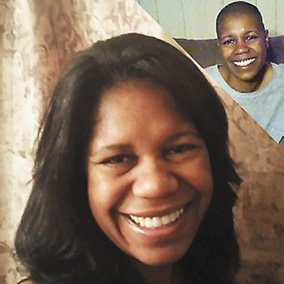
RENEE B. BAGONS
I remember when I was a young teenager, it was discovered that I had a cyst — so I started checking my breasts early in life. I was in a horrible marriage at the time I found out I had breast cancer, and I also got very involved with the church. I always knew that when I got serious about God and church, I would be tested. I prayed to God to help get me out of the relationship, and I also did a self-breast exam. I felt a lump, but tried to ignore it because I didn’t want to admit something was wrong. So, I allowed the lump to be in my breast without getting it checked for a couple of months. I checked it again, and it had gotten bigger, so I made an appointment to see my doctor. I was 42 years of age — the same age my mother was diagnosed with breast cancer. I said, this is God saying to me, “You choose. Do you want to get better, or do you want to stay in your unhealthy relationship?” I moved out of my home and moved into my brother’s house. I left my marriage and put my full concentration on my health.
I told the doctors that I didn’t want any surgery, and I completed five treatments of chemotherapy, and during that treatment I got appendicitis. So, I had to have my appendix taken out. I didn’t have any radiation. Only chemotherapy. I have been healthy ever since, and cancer-free now for six years. I eat healthier, exercise, get my rest and let God do the rest. I always tell other women to have faith and to know yourself and your body. I took it one step at a time. I didn’t want the doctors to cut on me in surgery, and I told them we would take it slow. So, I took the chemotherapy, and that was all I needed. But, at the beginning, the doctors wanted to perform surgery and cut everything out. They wanted me to do radiation and then it was this and that. Know your body and who you are — and don’t let other people influence your decisions. Ask questions and talk to other people you know who are going through or have gone through the process. You figure it out. It’s your life.
CYNTHIA “MSCJAY” JUDGE
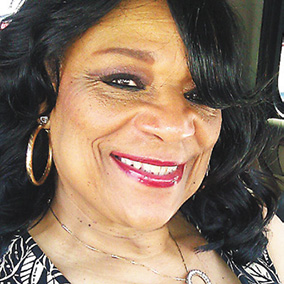
CYNTHIA “MSCJAY” JUDGE
I was 30 years of age the first time I was diagnosed with breast cancer. I was married with three children, and remember feeling something wrong while I was on a family vacation. I had a stabbing pain in my breast.
I worked in a medical facility, and I had a physician I worked with check it out once I arrived back from vacation. He immediately sent me to a hospital to be checked by a surgeon. Every doctor I was seen by I had worked with, and the surgeon discovered a lump that he later performed a … biopsy on. The year was 1979, and when the doctor came back into the exam room he had tears in his eyes and gave me the results. He told me that the cells in my breast were malignant cancer. I was devastated. Many people believe that breast cancer lumps don’t hurt, but it was the pain that brought it to my attention. I later went on to have the one breast removed that had the breast cancer. Fourteen years later, I was diagnosed with breast cancer in the other breast. I found the lump in my breast myself and I was shocked.
The removal of 17 of my breast lymph nodes during the first bout with breast cancer left me with the disease Lymphedema — which is a compromised immune system that causes swelling in my arms, hands and legs. There is a 50 percent chance of women who have had breast cancer and removal of their lymph nodes will contract Lymphedema.



